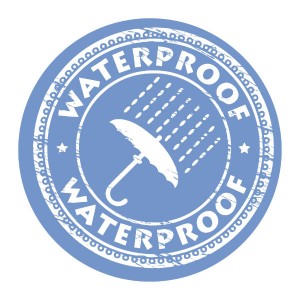April showers bring May flowers, but all that rain can also lead to leaky chimneys and problems with water entry. Water leaks are often the primary cause of damage to masonry, chimneys, and fireplaces during the months of spring and summer. Below are some of the symptoms you may be experiencing with a leaky chimney, as well as how to prevent water damage.
Symptoms of a chimney leak
There are a number of ways to tell whether or not your chimney is leaking. Below are just some of the signs you may notice if you have a leaky chimney.
– Water pooling in the attic or basement
– Condensation or water on the inside of the firebox
– Moisture or water staining on ceilings or walls
– Sound of dripping water inside the chimney
– Dank, musty odor, particularly after a rain storm
– Cracked or spalling brick
How water gets in your chimney
Chimneys are built to prevent water from getting in. However, over time they may deteriorate or be damaged, losing the watertight seal they were built with. Although it can be difficult to pinpoint the exact cause of your leaky chimney, the following are some of the most common causes of water entry.
Chimney cap: The chimney cap covers and protects the top of the flue from moisture, debris, and animal entry. However, if they chimney cap is damaged – on in some cases of older homes, missing entirely – the flue is unprotected and vulnerable to water entry.
Flashing: Flashing is used to seal the crack between your chimney and the roofline. Oftentimes, inexperienced roofers use too many nails when attaching flashing, allowing water in; however, even correctly installed flashing can be damaged by exposure to the elements over time.
Masonry damage: Water can be extremely detrimental to the masonry of your chimney. Because bricks are porous, they may absorb small amounts of water. However, if the water freezes it can expand, damaging the brick.
Preventing chimney leaks
The best way to prevent chimney leaks is through regular chimney maintenance such as an annual sweeping or inspection. Oftentimes, these routine checks are able to find – and fix – minor issues before they turn into major problems. Likewise, using the same sweep year after year means they will be more familiar with your specific fireplace and chimney and more likely to notice if something changes.
Another way to prevent chimney leaks and water damage is by waterproofing. If your masonry has already begun to show signs of water damage such as cracking, applying a waterproofing product may be able to extend the life of your chimney. Unlike paints and other sealers which trap moisture and gas in the brick, specially designed chimney sealers allow trapped moisture and gas to pass through while still keeping new water out. Waterproofing isn’t just for homes with masonry damage; even if you are not experiencing any water or leaking issues, having your chimney waterproofed is an excellent preventative measure to take.
If you’re experiencing a leaky chimney caused by spring rains, contact New Buck Chimney Services today. Our expertly trained staff can not only identify the source of the leaking, but can also repair it along with any damage caused by the water in your chimney system.

